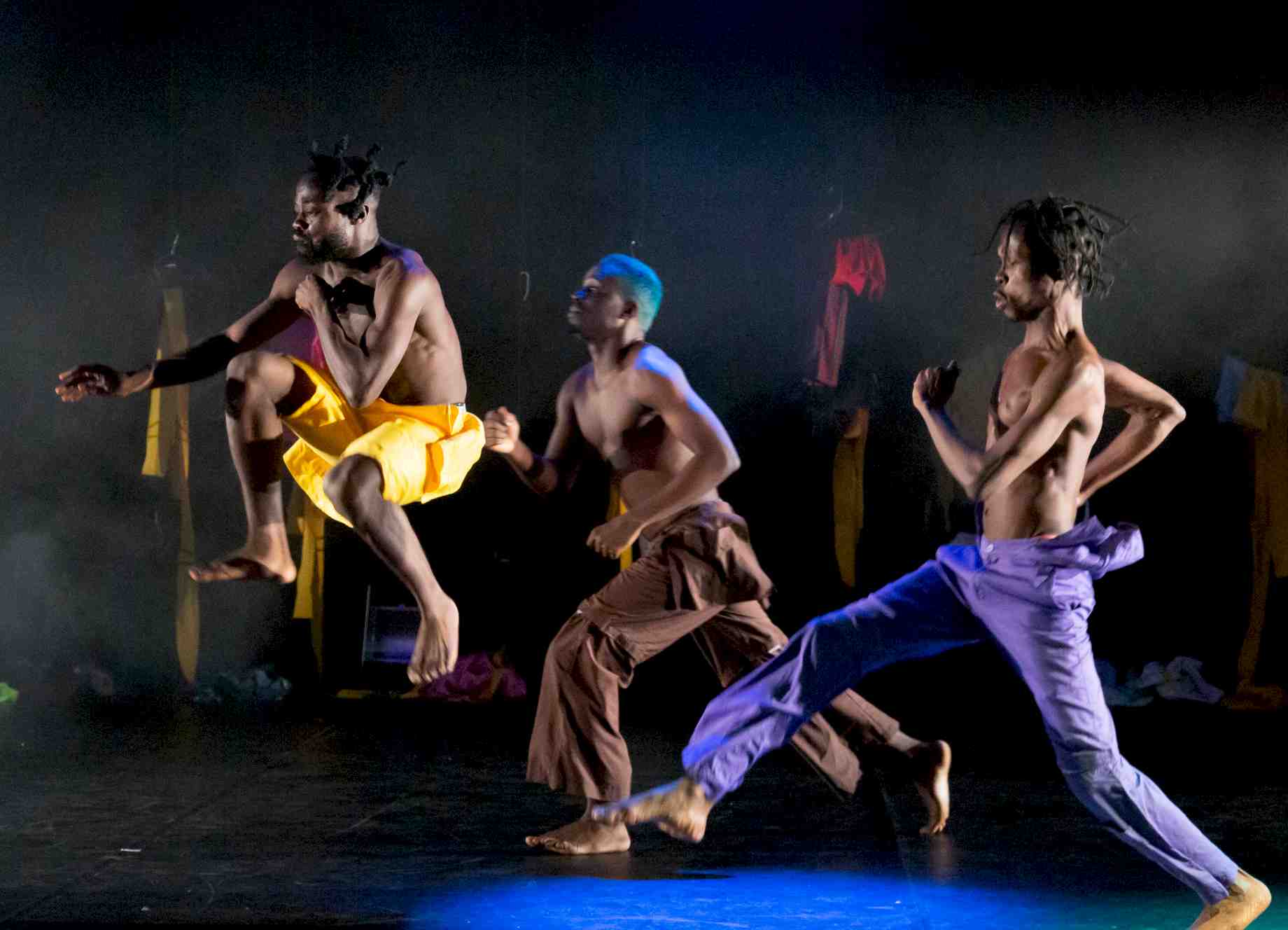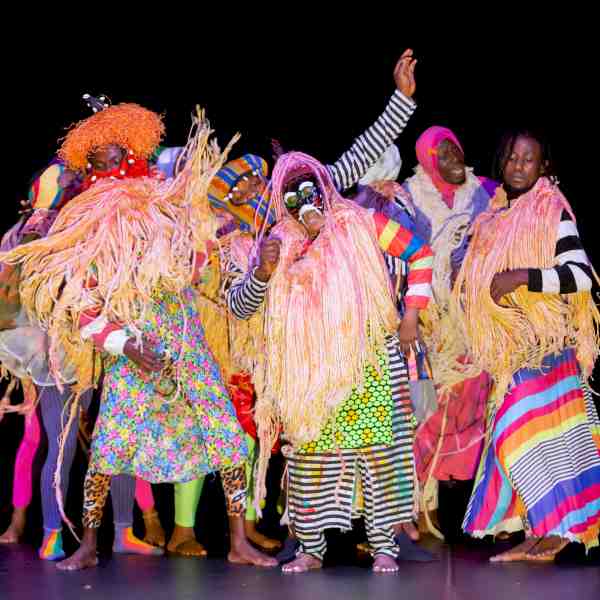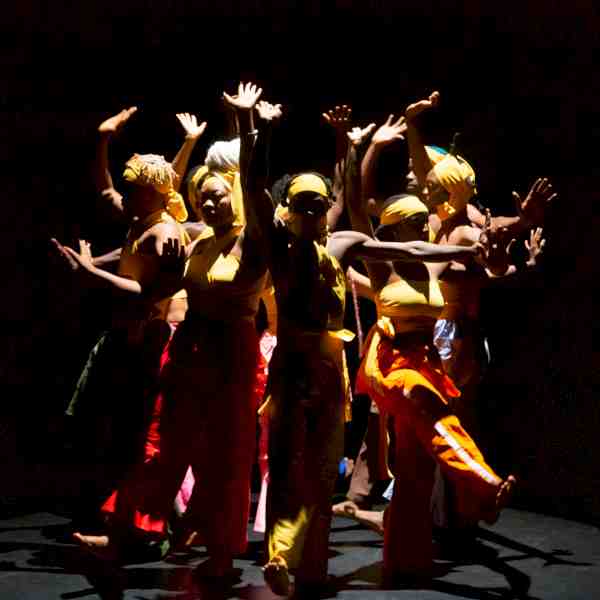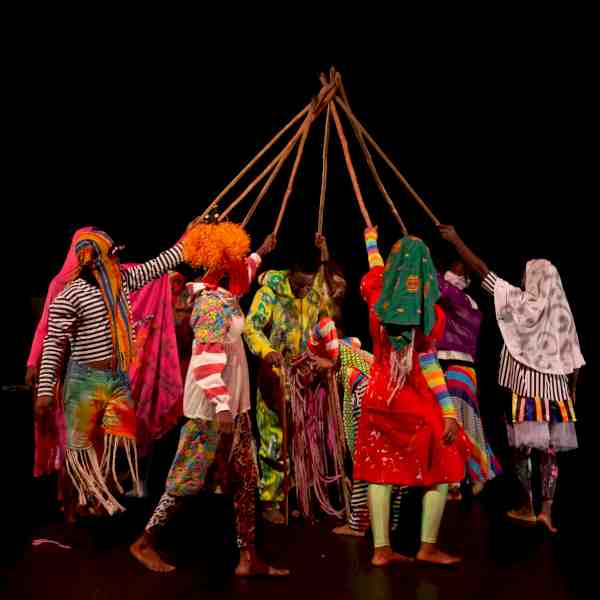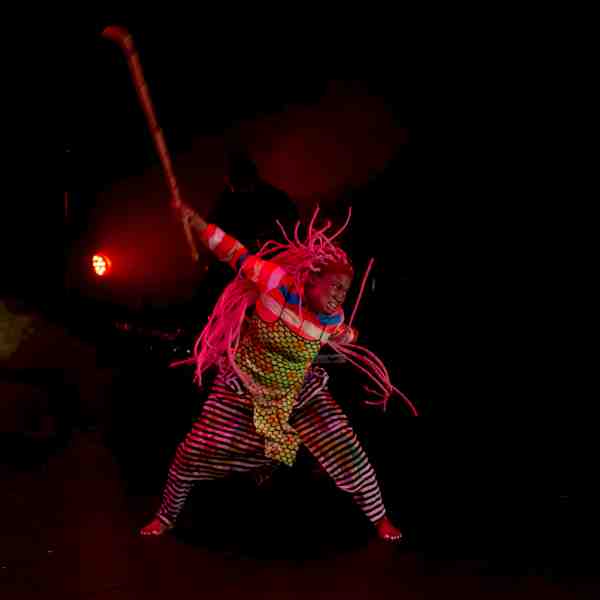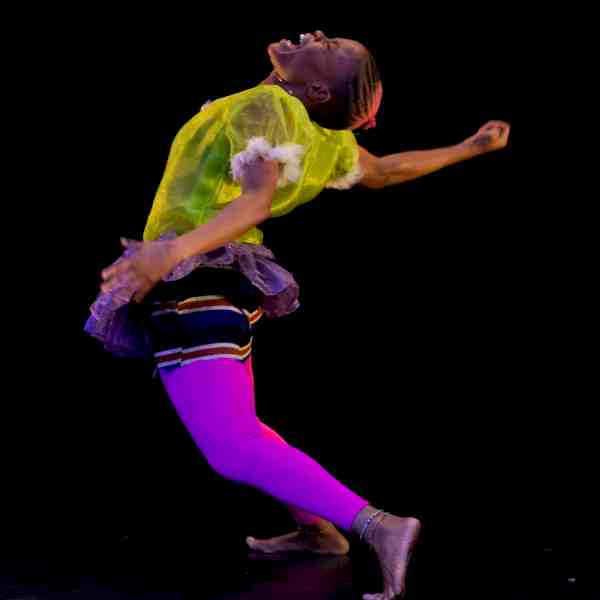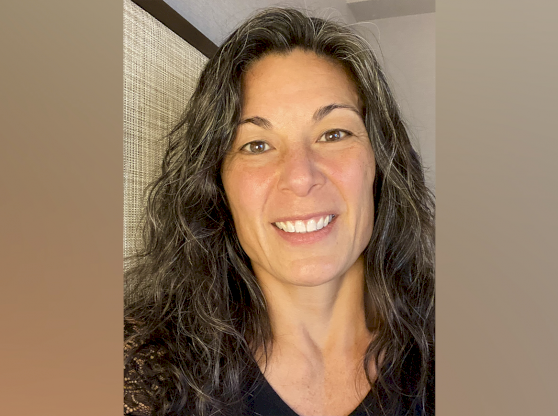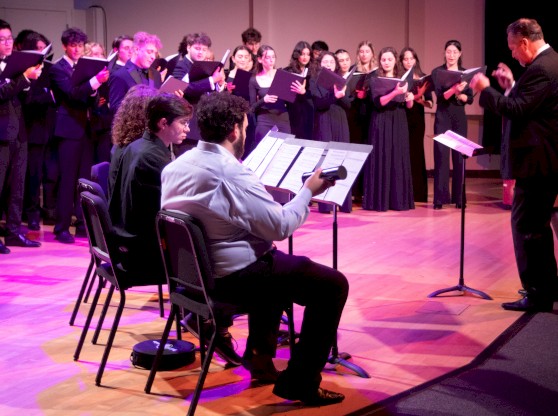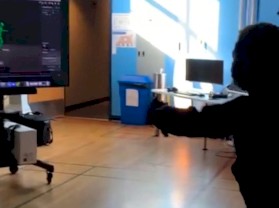“What are we going to bring to the world if we're not actually in conflict with that world—or rather that world is not in conflict with us?”
-Qudus Onikeku, Maker in Residence, Center for Arts, Migration & Entrepreneurship
The work of a new generation of dancers took the stage in January 2021 as the People Centre of Lagos, Nigeria, premiered RE:INCARNATION at the Centre Pompidou in Paris, France.
Under the artistic direction of Qudus Onikeku—Maker in Residence at the UF Center for Arts, Migration, and Entrepreneurship—this urban piece for ten dancers and one musician reimagined the concept of reincarnation.
Onikeku’s work with the project is rooted in Yoruba philosophy and the Afrobeats movement, stemming from the genre of popular music from West Africa and the diaspora that initially developed in Nigeria and Ghana.
Yoruban beliefs tell of three worlds that exist in constant communication: the world of the living, the world of the ancestors, and the spirit world. They understood thousands of years ago that these worlds can transcend the boundaries between them. This notion of transcendence is what piqued Onikeku’s interest to explore how the young dancers in Lagos are utilizing the virtual world to cut across global boundaries of time and space in order to share knowledge about dance.
What fascinates Onikeku most is the capacity for the young dancers to invent new styles of dance without formal training.
“The highlight for me is that these kids don’t have formal training, they didn’t go to a university, and didn’t even have transmission from my generation or those above us because there was a break,” Onikeku said, “and precisely because of that break is what gave them the capacity to invent something original.”
No matter how original, however, the new dance styles have an inherent direct connection to their ancestors. This is the connection that Onikeku sought to explore.
The story of RE:INCARNATION is meant to disrupt and undermine the normalized view or version of blackness that typically emphasizes the reaction to brutality and violence and instead tells a story of extreme joy expressed through the lens of Afrobeats.
The performance recalls the free spirit of the 1970s, which was the origin of the afrobeat music started by Nigerian multi-instrumentalist, Fela Kuti. Kuti was performing at a time that marked the Golden Age of Black Excellence and a time of reimagining the African identity.
“The 1970s is just 10 years after the independence of most African countries, and we were in the process of reimagining ourselves after going through the long chain of colonialism the entire 20th century up until the 60s and 70s,” Onikeku said. “We were responding to what other people thought about us and our future from the 60s. People gained a sense of autonomy and the ability to reimagine themselves. Blackness was no longer responding to whiteness.”
This time of cultural and artistic freedom allowed people of the 70s to bring back traditions that were buried by colonialism. Onikeku connects this return to cultural traditions to the youth of Lagos and to RE:INCARNATION.
“We understood that it was the spirit and the mind that was colonized because you cannot colonize the body,” he said. “When you make the body go through pain, it only gets stronger.”
The performance is divided into three frames relating to time—past, present, and future—expressed through birth, death, and rebirth, and through heaven, hell and purgatory.
The dancers start in paradise, then hell, and end in purgatory, and they are associated with the colors white, red, and black, respectively. Purgatory, being a space between spaces, leaves an open ended interpretation of the performance that reflects Yoruba beliefs of cyclical time, never reaching an absolute ending but moving to the next cycle.
“The future is purgatory, because it is not absolute,” Onikeku said. “Only the present is settled, the past can change based on who is narrating it, but the future has yet to be invented. The future is black, not referencing race, but the color of the unknown.”
This is the first time Onikeku has organized a full-length crowded piece with multiple dancers.
The project was entirely collaborative, with no single choreographer holding creative power, an idea he associates with Western hierarchies.
“There is no word for choreographer in my culture,” Onikeku said, “It’s not humanistic enough, and I wanted to create a humanistic piece that, at its core, does away with Western logic of things.”
Onikeku is in the middle of his three-year term as Maker in Residence with the UF Center for Arts, Migration, and Entrepreneurship (CAME). CAME’s director, Oṣubi Craig, said Onikeku’s work and his organization of RE:INCARNATION exemplifies the center’s mission.
“Qudus, like many artists, brings his cultural production to the world in a way that not only benefits himself, but he looks to benefit an entire community and represents it in a way that is deeply rooted in the culture, in a way that is real,” Craig said, “and in a way that ensures everyone who was involved is directly benefiting from what they are contributing to the world.”
After receiving critical acclaim at its Paris premiere, RE:INCARNATION will make its U.S. debut on May 15, 2021, during a New York Live Arts festival. The Center for Arts, Migration, and Entrepreneurship will also host a panel discussion prior to the screening and will follow the show with a conversation between Qudus Onikeku and Bill T. Jones and moderated by Onye Ozuzu, dean of the College of the Arts.
“RE:INCARNATION brings Afrobeats to the concert stage,” Craig said. “Innovations like this are what CAME is all about: the cultivation and conversation around building a network of networks of artists who are at the cutting edge of their discipline and looking at the context, the economies that are affected by them, the entrepreneurship and ingenuity that they develop, and the communities that they are representing.”
